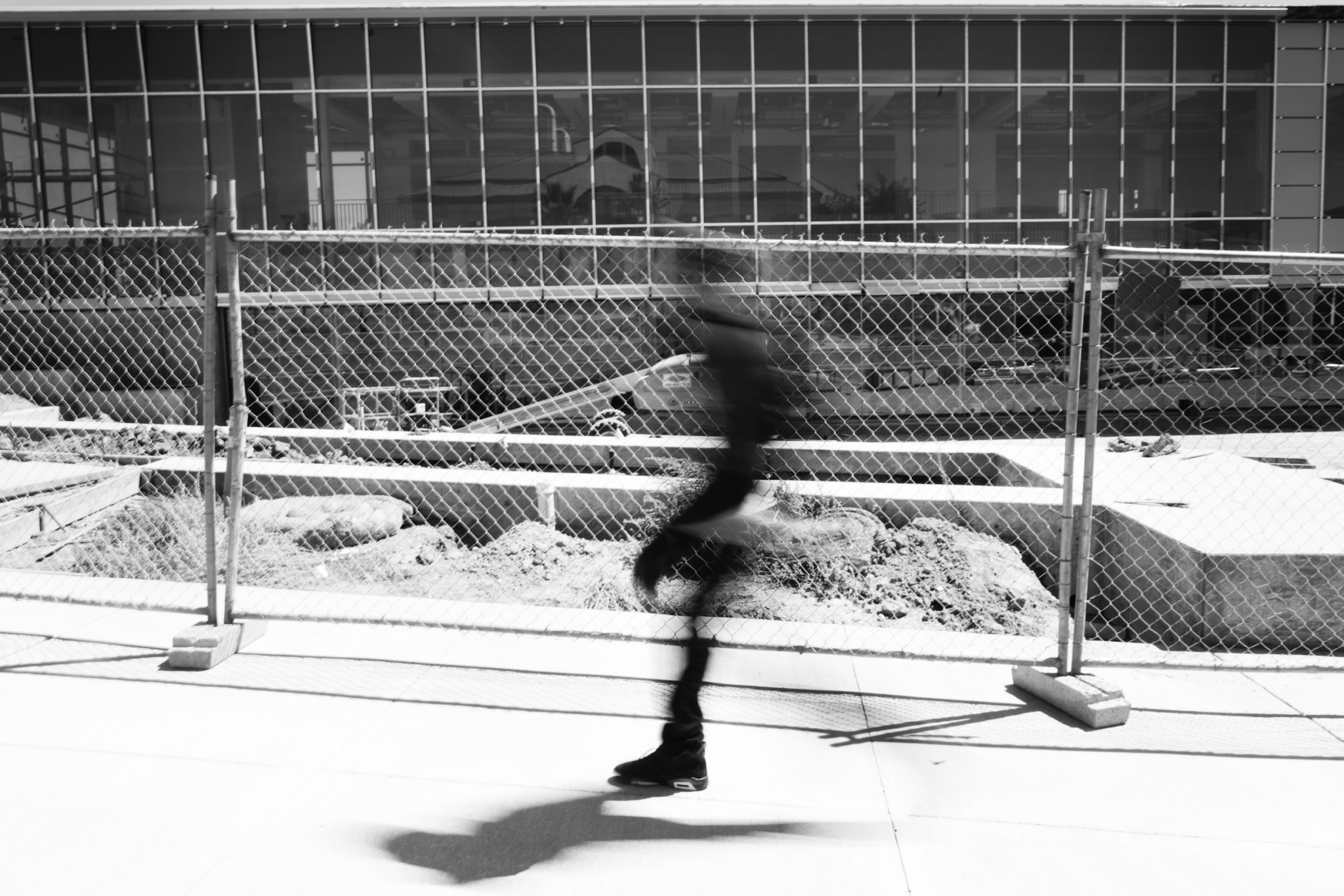On Mar. 2, San Francisco police attacked protesters with batons and pepper spray during a protest against Israel’s planned bombing of Rafah. The protest numbered about 15,000 people, according to a speaker from the Act Now to Stop War and End Racism (ANSWER) Coalition.
The event started at noon in Harry Bridges Plaza with speakers from the Palestinian Youth Movement, the ANSWER Coalition, the International Jewish Anti-Zionist Network and other local groups that endorsed the protest. The crowd spent an hour conversing, listening to speeches, participating in chants and distributing flyers and stickers. About 1 p.m., attendees began their march down Market Street towards the Israeli Consulate.
While originally organized as a multinational event in objection to Israel’s plan to bomb the city of Rafah on the eve of Ramadan, the protest was further spurred by the massacre that took place two days earlier. On Feb. 29, Israeli soldiers opened fire on Palestinians attempting to retrieve food from a convoy of aid trucks in western Gaza. This shooting resulted in more than 118 dead and over 760 injured, as reported by Al Jazeera. This particular attack is now referred to as the Flour Massacre.
The march was led by speakers with high-visibility vests and megaphones, followed by a procession of drummers. Protesters waved Palestinian flags, wore keffiyehs and held aloft handmade symbols of protest including foam watermelon slices to represent the flag and flour boxes referring to the Feb. 29 killings. As the protesters marched they participated in chants expressing support for Palestine and condemning the United States government’s funding of Israel.
Police cars arrived as soon as the march started, though they could not move directly alongside the march as the mass of protestors took up the entire width of the street. The march was held up at times as police blocked off the protest’s planned route towards the Israeli Consulate on Montgomery Street.
A confrontation between protesters and police took place at 2:30 p.m. at the intersection of Montgomery and Sacramento Streets, said Wassim Hage, a spokesman for the Arab Resource and Organizing Center, during an interview with Bay City News. Describing the police attack, Hage told Bay City News that five to 10 protesters were affected by pepper spray and one suffered a broken hand.
A video from KTVU FOX shows footage of a police officer spraying multiple protesters in the eyes from across the barrier of short metal fences the police had put in place to block protesters from approaching. Other scenes in footage in the same video show multiple police officers in riot gear leaning over the barrier to hit protesters with their batons.
Organizers at the front of the protest called out for a medic, a request which was relayed through the group via chanting. After a period of waiting the event organizers directed the march to turn right and march around the consulate rather than to it. They explained to the attendees that “our job is to keep each other safe” and the organizers “didn’t want people to get hurt.”
When Bay City News asked the San Francisco Police for comment, the police stated they intervened because protesters “began to commit crimes ranging from assault to felony vandalism and causing property damage,” though they did not provide proof of this claim. Police did not respond to KTVU’s request for a statement.
Despite the skirmish with the police, the protesters completed their march at 4 p.m. by returning to Harry Bridges Plaza for another round of speeches. One speaker told the crowd, “Those cops in their riot gear were scared when they saw us coming 15,000 strong towards the Zionist embassy. … I don’t know how many of you saw this, but they pepper sprayed us … right in the eyes and we couldn’t see. And they didn’t just do that, but they took the batons and they started hitting protesters. We are peaceful protesters in the streets of San Francisco out here for a free Palestine. But they won’t stop us. They won’t intimidate us. We will stay out on the streets for Palestine.”
Another speaker, an organizer from Stanford Students for Justice in Palestine, called for students across the world to protest to urge their schools to divest from companies that fund the Israeli military. The speaker said, “Now more than ever, the movement needs every one of us to stay active. If you are a college student, join your SJPs, and if your college doesn’t have an SJP, get organized, start one, and it just takes one of us to begin that movement in our own spaces.”
Students for Justice in Palestine (SJP) is an activist movement in universities across North America that seeks to use peaceful protest methods such as marches and sit-ins to discourage educational institutions from supporting the Israeli government. Las Positas does not have a registered SJP club on campus.
LPC purchases computers, printers and other equipment from the companies Hewlett-Packard (HP) and Intel. Both companies are on a list created by the Boycott Divestment and Sanctions (BDS) movement, included due to their past and present actions providing the Israeli government with technology and funds to strengthen its military and store biometric data on its citizens.
Local activist organizations continue to plan protests throughout March. A calendar with dates and locations of protests in the Bay Area is available from the Arab Resource & Organizing Center’s website found at aroc.herokuapp.com/events.


